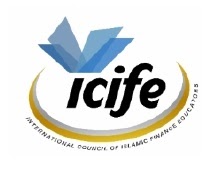Malaysian Prime Minister Datuk Seri Najib Tun Abdul Razak is the recipient of this year’s Global Islamic Leadership Award. Najib, who is also the Finance Minister and Chairman of Barisan Nasional, received the prestigious award from Global Islamic Finance Awards (GIFA) founder, Profesor Humayon Dar.
GIFA, one of the most prestigious awards in Islamic banking and finance, recognises and celebrates the achievements and contributions of individuals and institutions in the Islamic financial services industry, and has been organised by London-based Edbiz Consulting since 2011.
The GIFA 2014 awards ceremony took place here at the 10th World Islamic Economic Forum in Dubai. On the sidelines of the forum yesterday,12 Memoranda of Understanding (MoU) and agreements were signed between various agencies and bodies representing Malaysia and the United Arab Emirates (UAE).
The Securities Commission (SC) inked a MoU with UAE’s Securities and Commodities Authority (SCA) to forge a strategic partnership in capacity building between the two leading regulators of Islamic capital markets.
The MoU sets out the foundation of further co-operation between the SC and SCA with key emphasis on the development of capital market and financial services industry professionals in Malaysia and the UAE.
SC chairman Datuk Ranjit Ajit Singh said this collaboration was part of SC’s broader efforts to foster strategic linkages with its counterparts in the Gulf Cooperation Council (GCC) countries to further the internalization of the Islamic capital market and facilitate more cross-border opportunities with the markets.
Maybank Islamic Berhad entered into a collaboration with the Federal Territory Islamic Religious Council (Maiwp) to set up a RM20mil Waqf Fund. The bank will provide seed capital to the fund to be invested into investment portfolios while Maiwp acts as its trustee.
Maybank Islamic chief executive officer Muzaffar Hisham said this latest initiative was to further enhance the bank’s agenda to support the government’s commitment towards a more equitable and broad-based economic growth.
Islamic finance was already seen as a potential catalyst for improving access to finance, particularly to alleviate poverty and the unique redistributive instrument such as Wakaf fulfills this agenda, he added.
Wakaf is an endowment made by Muslims to religious, education and charitable cause.

